July 2021

July 2021
The times change. And perhaps this year and the last were the most transformative in history. COVID-19 completely changed the lives of everyone around the world. The lifestyle transformation even impacted how we vacation. In contrast to the days before COVID-19, we live in a “non-contact” world, and the trend is toward “no-contact vacations” that minimize person-to-person contact. If this is the case, what were vacations in Korea like before the pandemic?
Written by
Hwang Jeong-eun,
travel writer
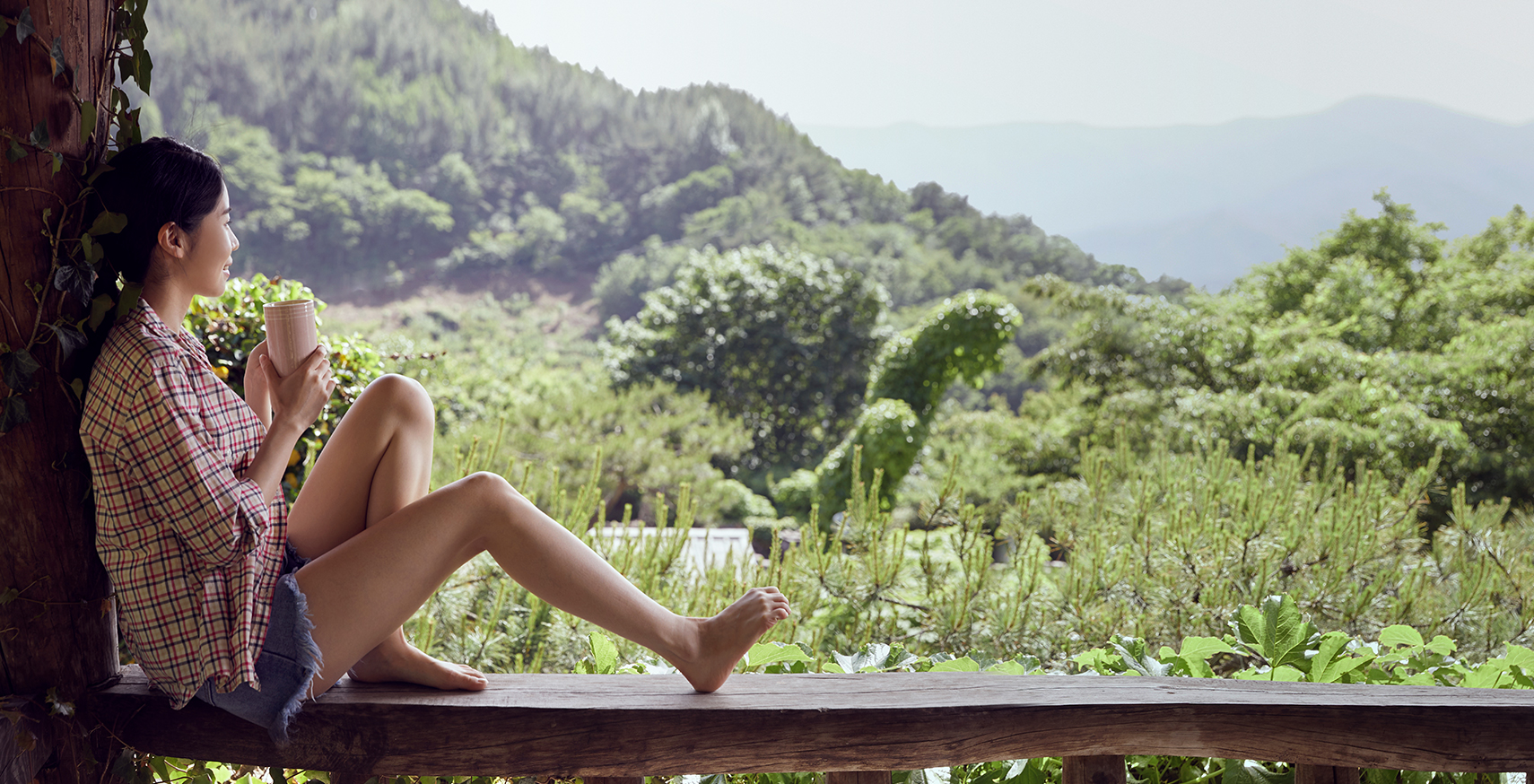
Koreans have borrowed the French word “vacance” to refer to summer holidays. The French word derives from the Latin word “vacation,” which means to “to be free of something” or “to vacate.” It means the same as the English word “vacation.” But why do we use the French word “vacance” when it is not France, but the United States that has exerted the greatest influence on modern Korea? We find the answer in the origin of French vacations, that is to say, “vacance.” On June 20, 1936, France’s National Assembly established the world’s first system of paid vacations, which became the model for paid vacations enjoyed by people the world over. And therefore, Koreans use the French word.
If the concept of vacations took root in France from 1936, the practice of taking vacations began in Korea from the 1950s. The Korean word piseo—“going to a cool place to escape the heat—appeared at this time. Though many people were destitute, they used to head to mountains or the sea to beat the heat. Many Seoulites relaxed in the water at neighborhood streams, the Hangang River, Ttukseom Resort or nearby pools. They also took public transportation to Daecheon, Songdo or Haeundae beaches to cool off. We can see just how many people flocked to the beaches back then from the archival notes of the 18th vice-ministerial meeting of 1956, when the government decided to extend the rail line to Daecheon Beach from June 30.
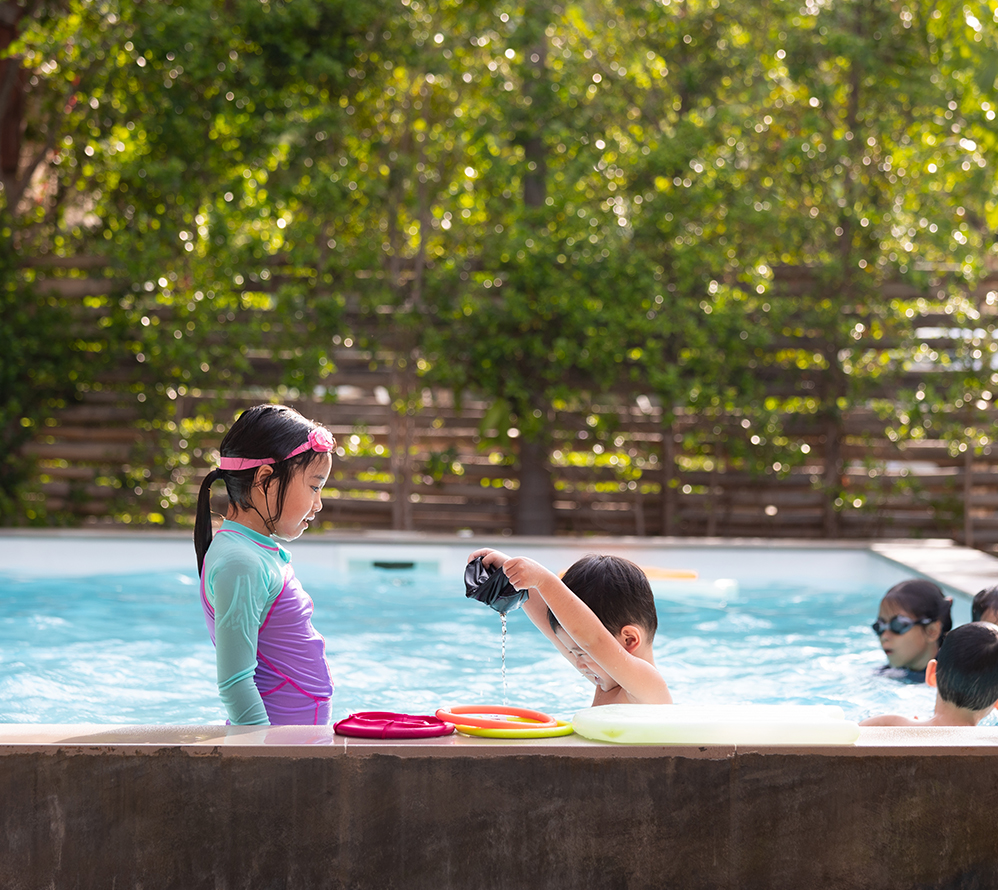 © shutterstock
© shutterstock
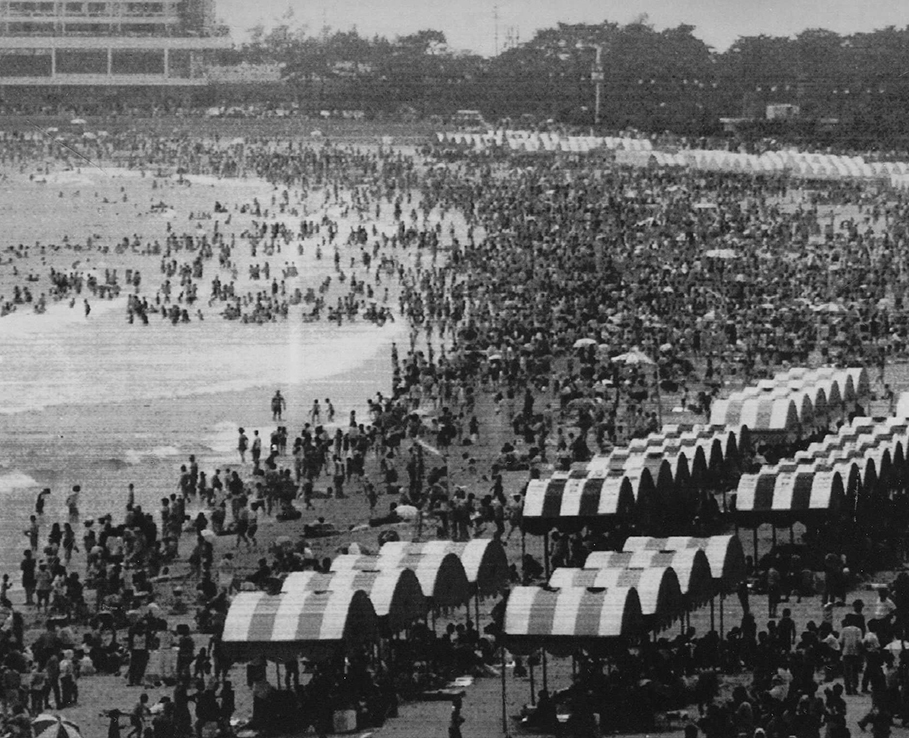 Beaches have long been a popular destination for beating the summer heat. © YonhapNews
Beaches have long been a popular destination for beating the summer heat. © YonhapNews
After the practice of piseo emerged in the 1950s and 1960s, piseo practices really began diversifying in the 1970s, which is when the French word “vacance” came into common usage. Massive crowds descended all at once on popular beaches such as Haeundae, Daecheon and Mongsanpo in the summer holiday season, producing side effects large and small. In 1970, Seoul’s police authority established the Hangang River Summer Police Department in Ttukseom to take charge of water safety and enforce public decorum. There were also many incidents of harm as overcharging became more commonplace. On the other hand, it became trendy for university students to engage in nonghwal, or “agricultural activities,” with participants volunteering in rural villages suffering from labor shortages under the slogan, “Let’s learn and work.”
Korea’s vacation scene began diversifying in the 1980s and 1990s as the country took off economically. Camping became popular with young people pitching tents along mountain streams or at beaches. In particular, as the number of families with cars grew in the 1990s, an early form of RV camping took root as well. Meanwhile, more and more people were vacationing abroad as Koreans began travelling overseas in earnest following the 1988 Summer Olympic Games in Seoul. In response, the state emphasized “frugal, healthy vacations.”
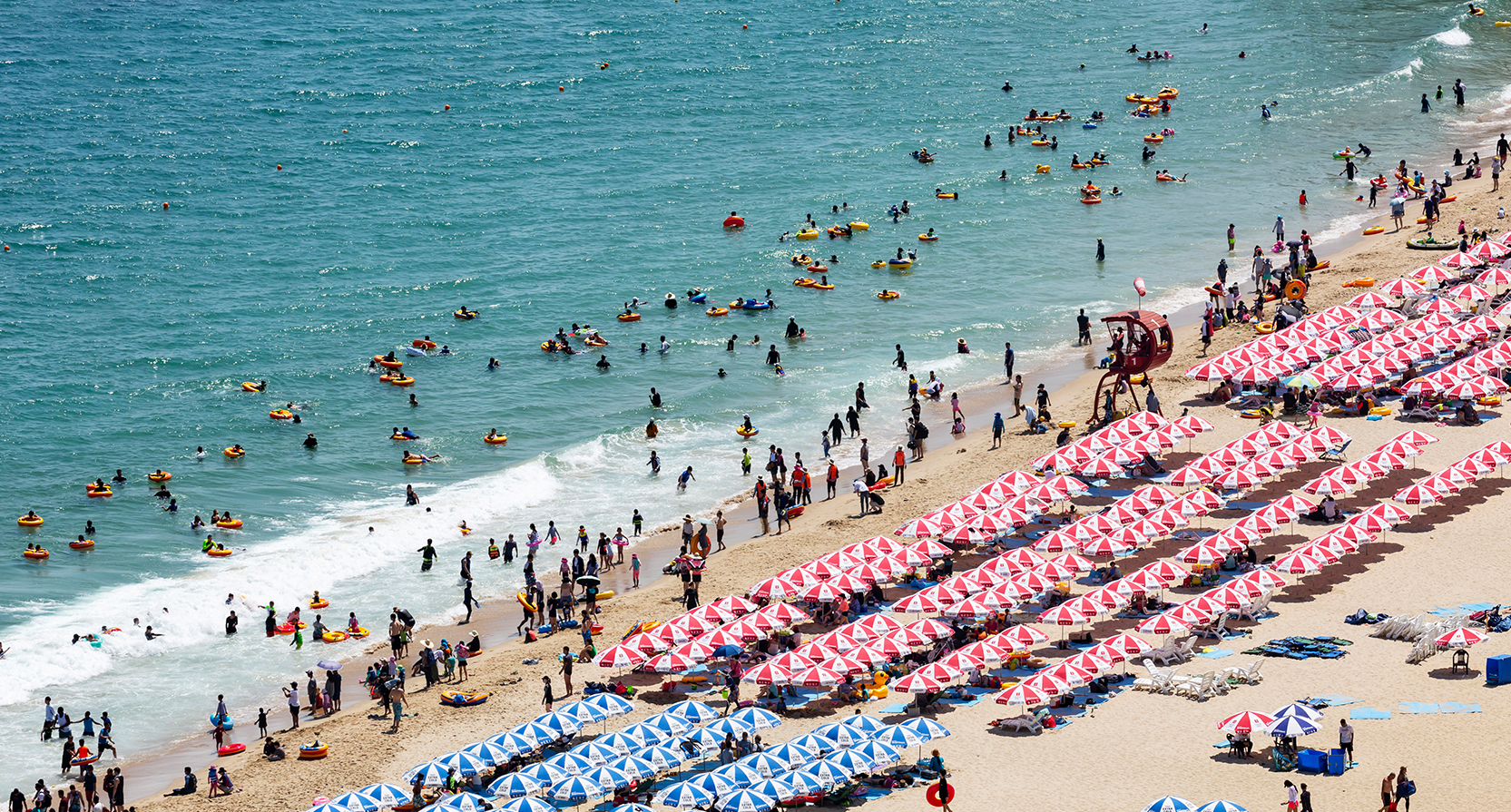 © imagetoday
© imagetoday
New vacation patterns emerged in the 2000s. Koreans coined new words such as “ho-cance” (“home vacance,” “hotel vacance,” or staycations at exotic resorts) and “book-cance” (“book vacance”) as the vacation scene shifted from simply “escaping the heat” to one emphasizing “relaxation.” Overseas travelers far outnumbered domestic travelers, too, with traveling abroad growing even more popular. To people now living in the “non-contact” era, vacation means to simply relax in your personal space. And with overseas travel restricted due to COVID-19, domestic travel is growing more luxurious and relaxing.
Going forward, what vacation practices will emerge after the COVID-19 pandemic recedes? Perhaps vacations will take the form of reclaiming—in one way or another—lost time for ourselves in our daily lives. How about focusing on “rest” in our individual spaces this summer as we look forward to recovering our disconnected daily lives through a healthy vacation?
The lifestyle transformation spurred
by the global COVID-19 pandemic has
impacted even the way we cool down
and take off for vacations.
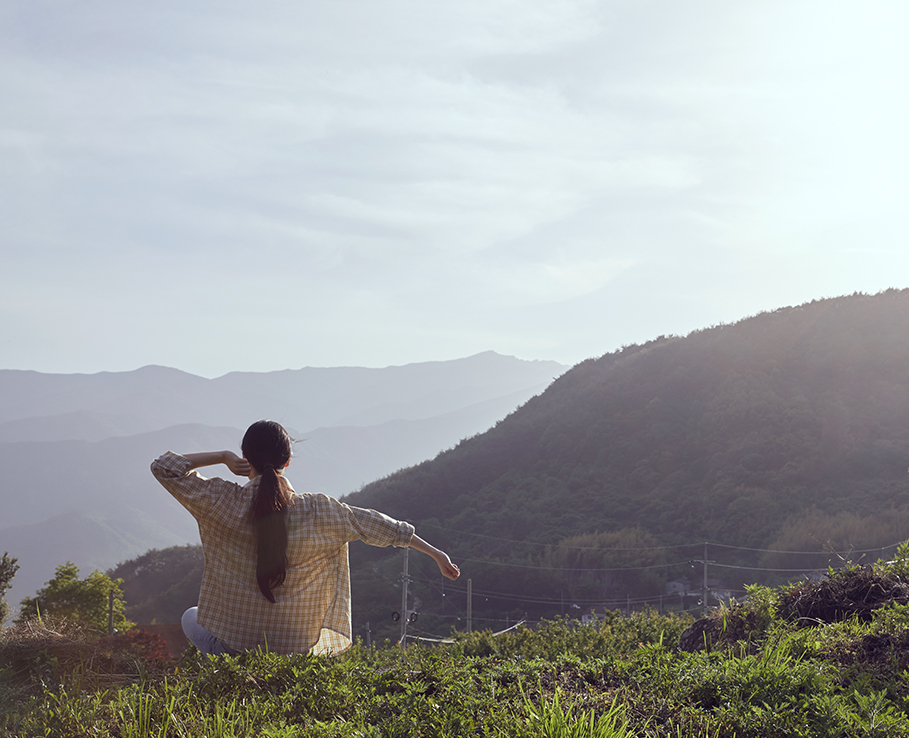 © imagetoday
© imagetoday
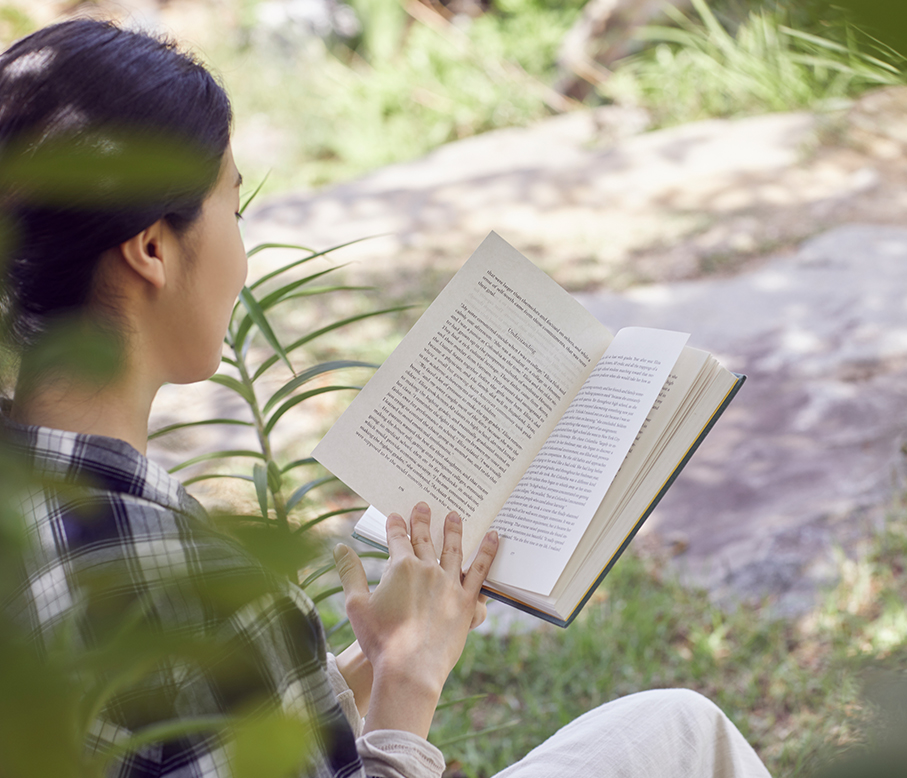 Nowadays, people opt for more laid-back, often luxurious getaways focused on ‘healing’ and tranquility. © imagetoday
Nowadays, people opt for more laid-back, often luxurious getaways focused on ‘healing’ and tranquility. © imagetoday